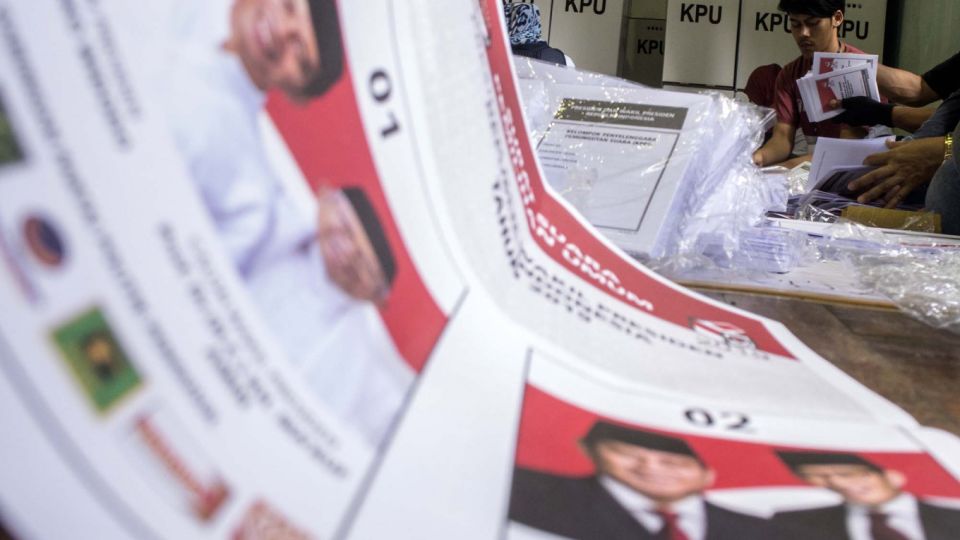November 7, 2022
JAKARTA – The Constitutional Court’s decision to clear the way for ministers to run in the upcoming presidential election without having to quit the Cabinet has left many wondering whether President Joko “Jokowi” Widodo, who still maintains his grip on his big-tent coalition, could really defy the infamous “second-term curse”.
Less than two years before the end of his second and last term of presidency, Jokowi has proved pundits and detractors’ predictions wrong about him becoming a lame-duck president, as the country saw happen to his predecessor Susilo Bambang Yudhoyono.
The President still maintains strong political capital with the backing of seven political parties – which now control 82 percent of the 575 seats in the House of Representatives, a stark contrast to his minority government coalition during his first year after being elected in 2014.
Jokowi also remains incredibly popular and his approval ratings have never fallen below 60 percent – as shown by many independent polls, an enviable position for any second-term president in any democratic country.
While it is clear that Jokowi has become more astute at bargaining with political parties, political analysts have said that whether Jokowi could keep away from becoming a lame-duck president hinged on how he navigated his final years.
‘Divided executive’
Last week, the Constitutional Court ruled to overturn a provision within the 2017 Election Law that requires high-ranking officials to quit if they wish to run for election. Now ministers only need the President’s permission to take leave during the campaign season.
It was a unanimous ruling made by the nine-member bench, which was presided over by Chief Justice Anwar Usman who was married to Jokowi’s sister Idayati in May last year.
Filing the sole concurring opinion was Justice Saldi Isra, who argued that having ministers contesting in the presidential race while still serving their duties could put the country’s presidential system in an unprecedented situation, especially when Cabinet members ran against an incumbent president.
When it comes to a two-term president, as was the case with Jokowi, Saldi said, rivalry among the President’s aides could put the country in an “anomaly”.
As Saldi puts it in his concurring opinion: “If there are two or more cabinet members who run as presidential or vice-presidential candidates, presidential aides and ministries will find themselves in a new [anomalous situation] – a divided executive.”
Dysfunctional
Such rivalry among Cabinet members is likely to happen as a number of ministers, who have been either touted as potential presidential or vice-presidential candidates in the 2024 election, have intensified ways to boost their profile. Billboards featuring presidential aspirants for the nation’s highest office have cropped up on the streets of major cities.
They include Defense Minister Prabowo Subianto, Coordinating Economics Minister Airlangga Hartarto, State-Owned Enterprises Minister Erick Thohir and Tourism and Creative Economy Minister Sandiaga Uno.
Some of the names in question have reportedly been among those being seriously considered to receive Jokowi’s endorsement, a move that analysts said was to make sure that his successor helped him safeguard his legacy.
Jokowi has said that he had no problem with his ministers running for election while in office, but cautioned that he would review their performance as a point of consideration for the next Cabinet reshuffle.
While some of the ruling coalition members have welcomed the Court’s decision, the ruling Indonesian Democratic Party of Struggle (PDI-P) – a party of which Jokowi is a member – has argued that there was an ethical matter that should be taken into consideration when ministers contesting in the upcoming presidential race.
“Political ethics and the psyche of the public require ministers to concentrate on the problems that the nation is facing. This should be the highest commitment of the ministers,” PDI-P secretary-general Hasto Kristiyanto told The Jakarta Post.
“In the context of political appropriateness, when there are ministers running for a presidential race and they have been announced by the KPU [General Elections Commission], they should submit their resignation to the President,” he added.
Political analyst Arif Susanto of Exposit Strategic said that the possibility of Jokowi’s administration becoming dysfunctional remained open.
“It is almost certain that we will see a declining trend of government performance. The focus of ministers who are political party members will be divided between their duties as ministers and their own political ambitions,” he said.
“If Jokowi fails to offer his broad coalition members any sort of rewarding trade-offs, there is always a chance that political parties will seek a bigger fish. That door is open through the upcoming elections.”


